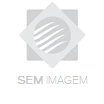Germany was the center of brewing technology in the 19th century. Leaf filters were an outgrowth of the brewing industry's need for filtering beer and producing a long shelf-life product for distribution. In 1878, Lorenz A. Enzinger of Worms, Germany brought the firm L. A. Enzinger into being that, just like the Seitz-Werke founded by Theobald Friedrich Seitz and Georg Heinrich Seitz, initially focused on the production of filter products. On June 4,1878 Mr. Enzinger filed for a patent on a device with paper filter layers for filtering of hazy and foaming liquids at the German Imperial Patent Office. The patent specification received the number 5159 and was confirmed on May 29,1879. That same year he formed the company, Enzinger Filter Company, to produce this new filtration equipment for the brewing industry in Germany.<br />
<br />
The first beer filter was presented at a brewing exhibition in Munich in 1880 by Enzinger. The filter was designed in a horizontal configuration, with individual plates having inlet and outlet channels, similar to modern plate and frame filters. Back then, the plate material was black iron with valves and meters made from copper and brass. Filter media was made of paper leaves which had to be changed after each filtration cycle.
Export ********
+1 716********
Angola / NY | United States



